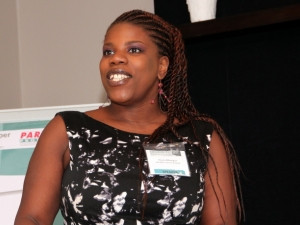
It is unlikely that Africa as a whole will meet the International Telecommunication Union's (ITU's) mid-2015 deadline to move off analogue television onto a digital platform, according to a research house.
Globally, the ITU will cease protection of analogue signal in the middle of 2015 and the world is moving off analogue signal to digital, the biggest development in terrestrial television since launch. SA was meant to turn on digital TV towards the end of last year, but this is now set for around the middle of this year, with turn off around three years later.
Digital television will free up more spectrum, which can be used for additional content, or broadband services in rural areas.
However, Thecla Mbongue, senior research analyst at Informa Telecoms and Media Group, says the slow start to digital television could push completion of migration to 2020. However, she says the main issue is not whether the deadline will be met, but rather whether set-top boxes - needed to convert the signal for viewing on analogue sets - will be affordable so that viewers are not left behind.
Around a quarter of all 190 million households in Sub-Saharan Africa have a minimum of one television set, says Mbongue. She says the low penetration is due to issues of affordability, but there is a big opportunity for growth due to economic gains and a growing middle class.
Informa's forecasts show that, for millions of Africans, a broadband-enabled phone will be the first video-capable device and not a television or PC, says Mbongue. She says that, by 2017, there will be more than 200 million smartphones in use on the continent, compared with under 50 million now.
Mbongue says pay-television has a small share of this market, at about seven million houses, of which Naspers-owned DStv has around 94% of the market share. Locally, about 58% of those who watch television subscribe to pay-television, with DStv again dominating, she adds.
The South African market, with 60% coverage of digital signal by the state broadcaster, is quite advanced, says Mbongue. She points out that Nigeria has only covered 6% of its population.
Share